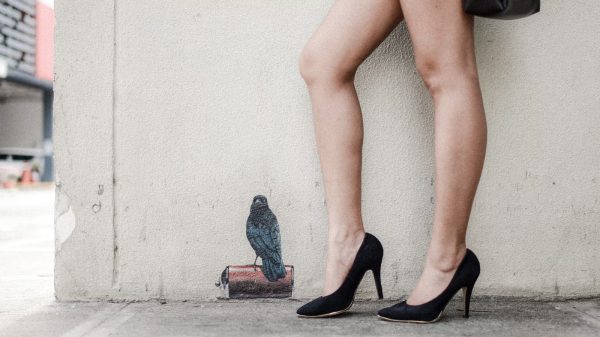LGBTQIA people are “no strangers to isolation, hardships and the stress of being alone,” said Bb. Kakay M. Pamaran, Director for Field Education of the Union Theological Seminary Philippines. And while stressing that she is, in no way, trying to “romanticize this, but I think of all people, we know what this level of isolation feels like because we’ve been there… many of us have been there.”
Bb. Pamaran was referring to the isolation/stress of being alone and hardships brought about by Covid-19, with many countries – the Philippines included – forcing people to stay indoors, else risk getting infected. The World Health Organization (WHO), itself, acknowledged that “as the coronavirus pandemic rapidly sweeps across the world, it is inducing a considerable degree of fear, worry and concern in the population at large and among certain groups in particular…”
There are those whose (religious) faith is getting them through; but there are also those who, in times like this, start questioning their faith. This includes LGBTQIA people whose lives, as it is, are often marked by religious persecution. And so for those of faith and who belong to the rainbow family… how does one keep the faith at the time of Covid-19?
RELIGIOUS FERVOR
“When people are afraid, they turn to God,” Bb. Pamaran said. “And the church, for the longest time, has been God’s mouthpiece.”
She, therefore, believes that “the church has a huge responsibility where this is concerned.”
This April, the WHO released “Practical considerations and recommendations for religious leaders and faith-based communities in the context of COVID-19”, which eyes to provide “practical guidance and recommendations to support the special role of religious leaders, faith-based organizations, and faith communities in COVID-19 education, preparedness, and response.”
WHO’s practical recommendations include: discouraging non-essential physical gatherings and, instead, organizing virtual gatherings through live-streaming, TV, radio, social media, et cetera; regulating the number and flow of people entering, attending or departing worship spaces to ensure safe distancing; management of pilgrim sites to respect physical distancing; and actual isolation of those who get ill/develop Covid-19 symptoms.
As stated by the WHO: Faith-based organizations (FBOs) “are a primary source of support, comfort, guidance, and direct health care and social service, for the communities they serve. Religious leaders of faith-based organizations and communities of faith can share health information to protect their own members and wider communities, which may be more likely to be accepted than from other sources. They can provide pastoral and spiritual support during public health emergencies and other health challenges and can advocate for the needs of vulnerable populations.”
Bb. Pamaran agrees – to an extent.
“It is very important, it is imperative for church leaders (and) faith-based organizations (FBOs) to deal with Covid-19 in factual, scientific ways,” she said. This is because “the things you say in the pulpit or all of the platforms that are available to you must always be based on scientific, medical evidence. And you have to exhaust all possible efforts to do your research because people tend to believe whoever is speaking behind the pulpit.”
Bb. Pamaran added that “people turn to superstition if scientific answers are not available. So as faith-based leaders, it is our responsibility to fuse rationality and factual scientific inquiry in these desperate (concerns).”
AN EYE-OPENING EXPERIENCE
According to Rev. Alfred Candid M. Jaropillo, Administrative Minister of the United Church of Christ in the Philippines (UCCP)-Ekklesia in R. Mapa St., Mandurriao, Iloilo City, Covid-19 is an “eye-opener for us that human as we are, we are finite beings, and we don’t have the control of life.”
But Rev. Jaropillo added that this ought to make people see that “people have contributions to the suffering of life, and the suffering of Mother Earth.”
RAINBOW IN FAITH
As FYI: In 2015, the Pew Research Center (PRC) noted that about 5% of the 2014 Religious Landscape Study’s 35,000-plus respondents identified themselves as members of the LGB population. And of that group, a big 59% said they are religiously affiliated. But only 48% of them reported belonging to a Christian faith group, compared with 71% of the general public.
Meaning: Although many members of the LGBTQIA community may feel that most major faiths are unwelcoming to them, a majority of them are still religiously affiliated (though not necessarily as Christian, but also as part of smaller, non-Christian denominations).

Bb. Pamaran noted that LGBTQIA people may not be going to churches because these are unwelcoming, or “they just don’t go to church because they gave up on church altogether. It was difficult for LGBTQIA people to express their faith pre-Covid-19; and now with Covid-19, it would be harder for them, I would imagine.”
Rev. Jaropillo added that it is, therefore, the church’s role to “open its doors… in ministering to people who need God the most: the vulnerable, poor, women, children, the displaced…”
There are, of course, open and affirming (or ONA, the term used by the United Church of Christ/UCC) churches and/or faith-based organizations, or those that affirm the “full inclusion of LGBTQIA and non-binary persons in the church’s life and ministry.”
And they are just as affected by Covid-19.
According to Bishop Regen Luna of the Catholic Diocese of One Spirit Philippines, which is based in the Province of Cavite, the mandate to socially distance meant they had to (temporarily) close, so “Covid-19 had a big impact on us.”
Among others, they had to forego masses, Bible studies, weddings, baptism, et cetera.
“Ayaw din namin magkahawahan (We also do not one to infect each other),” he said.
Added Rev. Joseph San Jose, Administrative Pastor of the Open Table Metropolitan Community Church: In the context that we’re a small church, “we don’t have as much of the resources, the facilities that other churches have.”
For instance, the Roman Catholic Church and bigger Protestant churches can broadcast live their masses/worships, “we are unable to do that.”
The composition of the church membership is also proving to be a challenge, geographically speaking. Rev. San Jose, for instance, is in Laguna (approximately 100.3km from Mandaluyong, where the church is located); and members are from the City of Taguig, Quezon City, et cetera. “This is an issue with the Covid-19 lockdowns (that limit mobility of people),” he said.
Bb. Pamaran said that, largely, faith expressions involve corporate worship/gathering in one space. “Without that, faith expressions… significantly change.”

RAINBOW LENS
But Bb. Pamaran wants people to draw something from this experience.
“It is also a good demonstration to non-LGBTQIA persons that this kind of isolation… is the normal for LGBTQIA persons even without Covid-19 as far as going to church is concerned, and in belonging in church communities,” she said.
For Bishop Luna, the pandemic is (similarly) showcasing the resilience of LGBTQIA churches.
“Sanay na kami sa hirap (We’re used to hardships),” he said, adding that they now know how to “stretch the budget to sustain a small church.” This is even if their main source of income (i.e. donations, for holding of sacraments like baptism, marriage/weddings, et cetera) is affected by the Covid-19 lockdowns.

RELATED ISSUES
Covid-19, on its own, isn’t the only problem; just as problematic are its effects on other issues.
In the case of Bishop Luna’s church-goers, for instance, “we have members who are also living with HIV.” Issues re access to life-saving antiretroviral (ARV) medicines have been reported on; particularly affecting those who have no access to treatment hubs/facilities, again because of immobility.
Rev. San Jose admitted that it’s a “personal struggle as a pastor” not being able to help out, particularly at a time when people are asking what churches are doing to help the needy. But “with our situation, it’s almost impossible for us to mobilize in the same way that other churches (have been mobilizing).”
DEALING WITH ‘NEW NORMAL’
Covid-19 introduced a “new normal” even to FBOs – here, largely dictated by going online.
Union Theological Seminary, for one, introduced online courses. Metropolitan Community Church hosts webinars and online conversations. Catholic Diocese of One Spirit Philippines has online services – though, as Bishop Luna said, holding sacraments (e.g. weddings) are still not done this way (thus the rescheduling of pre-booked events to next year). Meanwhile, Open Table Metropolitan Community Church’s Rev. San Jose records sermon/homily for Sunday online “gatherings”; which is also the time when members videoconference to discuss their faith and, yes, Covid-19.
“I think that’s going to be the trend,” said Bb. Pamaran. “This is going to be how we facilitate conversations moving forward.”
Rev. Jaropillo – whose UCCP-Ekklesia also has worship services – said that while churches now also use technology in ministering to people, “we don’t stop there. Aside from virtual worship services, we concretize the love of God through relief operations. We address two things: the liturgical/spiritual ministry through virtual worship services, and the physical need of people. Churches should have a holistic approach (to this).”
“It’s best to respond with creativity,” Bb. Pamaran said.
UNSHAKEN FAITH
At the time of Covid-19, Rev. Jaropillo said that “it’s very natural to doubt and it’s human to question one’s faith: ‘Natutulog ba ang Diyos (Is God asleep)?’ But I believe I don’t need to defend God. God understands the doubts of the people nowadays. So as a church, we need to journey with these people who are in doubt, especially at times of crises like now.”
Bishop Luna agrees.
“Some people ask why God would let something like this happen,” he said, adding that while these questions are unnecessary, that they are asked at all is “natural”/understandable. But he said that times like this offer lessons from God, and people should listen. “We believe in a loving God… We believe that God is teaching us – e.g. how to look after the environment, health, and respect of other creatures. We’ve forgotten these. We also live fast lives; we don’t even think it can end in a blink of an eye.”
For Rev. San Jose, it may be worth echoing what Pope Francis said when asked by a child why there’s human suffering. “Sometimes we just don’t know. It is what it is. There is a mystery of suffering and pain. And it would be very arrogant for us to try to answer very difficult and almost no-answer questions. The progressive faith compels us not to ask where God is, but to ask where we are and what we are doing at this time to be the channel of God’s love, comfort, hope for ourselves and for others.”

For Bb. Pamaran: “It’s a common question to ask where God is in all these. But perhaps it’s the best time to ask where humanity is in all these. It is the best time to look into our humanity and our creativity, our innovative imaginations to pull through this.”
LGBTQIA OF FAITH
To LGBTQIA people of faith, Bishop Luna calls for prayers – “unified prayers” – while spending time with loved ones, and looking after oneself (e.g. mental health).
“Ibigay natin laat ng ito sa Panginoon (Surrender everything to God),” Bishop Luna said, adding: “We believe that this, too, shall pass.”
LGBTQIA people are resilient, continuing to face hardships in life. “We can survive this, too,” he said, “and pass this with flying colors.”
It is also the resilience of the LGBTQIA people that Rev. Jaropillo wants to highlight. That LGBTQIA people find joy/laugh even in dark times is something that can be shared to cheer up communities. “Continue to shine as a rainbow, to inspire other people.”
Covid-19, said Rev. San Jose, is also a good time for the LGBTQIA people to reflect on social justice. “There is a need for us to be more active in engaging in the issues faced by the country, by our community,” he said. “There is really a great need to organize and mobilize.”
“No sector of people understands isolation more than the LGBTQIA community. We can imagine, we can grasp the loneliness and isolation that Covid-19 brings. And so try to remember how you pulled through all these years, and then try to help others do the same,” said Bb. Pamaran.
In the end, “now more than ever, the world needs color; the world needs our color. So be that… for yourself and for others,” Bb. Pamaran ended.
The founder of Outrage Magazine, Michael David dela Cruz Tan completed BA Communication Studies from University of Newcastle in NSW, Australia; and Master of Development Communication from the University of the Philippines-Open University. He grew up in Mindanao (particularly Kidapawan and Cotabato City), but he "really came out in Sydney" so that "I sort of know what it's like to be gay in a developing, and a developed world". Conversant in Filipino Sign Language, Mick can: photograph, do artworks with mixed media, write (DUH!), shoot flicks, community organize, facilitate, lecture, and research (with pioneering studies under his belt). He authored "Being LGBT in Asia: Philippines Country Report", and "Red Lives" that creatively retells stories from the local HIV community. Among others, Mick received the Catholic Mass Media Awards in 2006 for Best Investigative Journalism, and Art that Matters - Literature from Amnesty Int'l Philippines in 2020. Cross his path is the dare (guarantee: It won't be boring).

































































